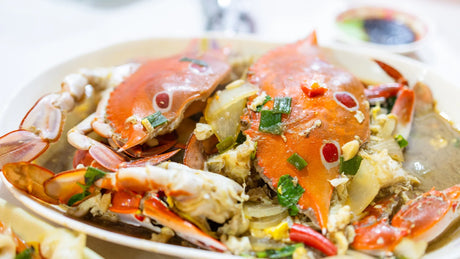Why buy from Seaco?
Trusted Seafood Supplier in Singapore for 20 years
Seaco is the retail brand of TheSeafoodCompany.
Established in 2005, TheSeafoodCompany is a trusted brand name in Singapore's F&B scene and we have been supplying to five star hotels, restaurants, cafes and more for close to 20 years.
With Seaco, you can now enjoy restaurant-quality meals in the comfort of your own home.
What's more? When you order from Seaco-Online, your seafood delivery will be sent to you via cold trucks, ensuring that they are kept in optimal temperature from us to you.
Explore our products and enjoy fast seafood delivery right to your doorstep.





































![[Buy 2 Free 1] Live Frozen Boston Lobster](http://seaco-online.com/cdn/shop/files/FrozenBostonLobster3.jpg?v=1726824736&width=460)















